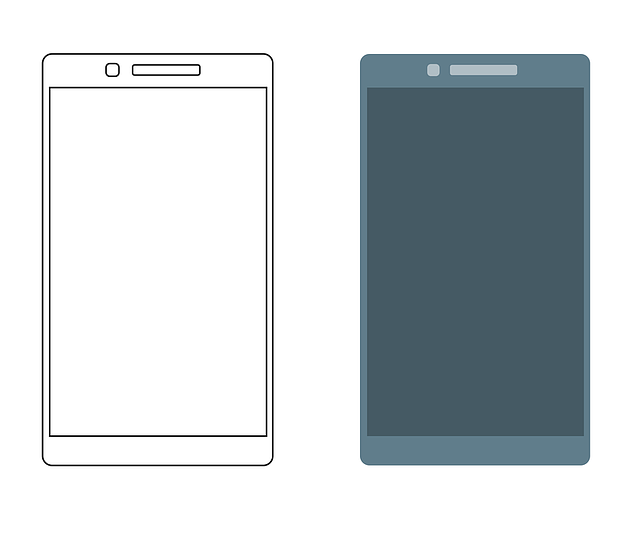West Virginia's No Call Laws protect consumer privacy and curb nuisance calls, especially for nonprofits. Nonprofits must obtain prior consent for telemarketing, maintain clear opt-out mechanisms, and respect donor privacy to stay compliant. Violations carry strict penalties from the Attorney General's Office. Adherence fosters positive community relationships and avoids legal repercussions.
“Charleston’s Comprehensive Guide to Telemarketing Laws for Nonprofits: Navigating No Call Rules in West Virginia. This article serves as your indispensable resource, offering insights into the intricate world of telemarketing regulations specific to West Virginia. We explore ‘No Call Laws’ and their relevance to nonprofits, detailing exemption criteria, best practices, legal compliance strategies, and potential penalties. By understanding these guidelines, nonprofits can enhance their fundraising efforts while adhering to state laws.”
Understanding No Call Laws in West Virginia

In West Virginia, respecting consumer privacy and minimizing nuisance calls is paramount, especially for nonprofit organizations engaging in telemarketing activities. The state has implemented “No Call Laws” to protect residents from unwanted phone solicitations. These laws strictly regulate when and how organizations can contact individuals by telephone, ensuring citizens have peace of mind from intrusive marketing calls.
Nonprofits must be mindful of the rules, which generally require prior consent before making telemarketing calls. This often involves obtaining written or electronic authorization, ensuring residents have the power to opt-out at any time. By adhering to these No Call Laws in West Virginia, nonprofits can build trust with potential donors and maintain a positive reputation, fostering a more productive relationship with their target audience.
Exemption Criteria for Nonprofit Organizations

Many nonprofit organizations wonder if they are exempt from state No Call laws, particularly in West Virginia. The criteria for exemption can be complex, but generally, nonprofits are protected from certain telemarketing regulations if they meet specific conditions.
To qualify for an exemption, nonprofits must demonstrate that their activities are primarily for educational, charitable, or religious purposes. They should not be engaged in commercial solicitation or selling of goods and services. Moreover, the nonprofit’s primary method of fundraising must not involve telephone calls to individuals, as per West Virginia’s No Call Laws. These laws aim to protect residents from unwanted telemarketing calls, ensuring a peaceful environment for those who choose not to participate in such activities.
Do's and Don'ts of Telemarketing Calls

When it comes to telemarketing calls, especially for nonprofit organizations in Charleston, West Virginia, adhering to the Do’s and Don’ts is crucial to ensuring compliance with local No Call Laws. Here’s a quick guide:
Do’s: Always obtain prior consent from potential donors before making outbound calls. This not only respects the recipient’s privacy but also boosts the chances of a successful connection. Clearly identify your organization and its purpose at the beginning of each call. Be prepared with information about your mission, how donations will be used, and specific details about the campaign or event they are being asked to support. Maintain a professional tone throughout the conversation, ensuring you listen actively and address any concerns or questions the donor might have.
Don’ts: Never make calls to numbers on the National Do Not Call Registry. This list is strictly protected by law, and violating this can result in severe penalties. Avoid excessive calling, allowing at least 30 days between attempts to reach the same household. Don’t use automated or prerecorded messages without specific opt-in permission from the caller. It’s also crucial not to harass donors or make false claims about your organization or its activities.
Legal Compliance Strategies for Nonprofits

Nonprofit organizations in Charleston, and across West Virginia, must navigate a complex landscape of regulations when it comes to telemarketing activities. To ensure legal compliance, nonprofits should implement robust strategies that align with state and federal laws. One key approach is to thoroughly research and understand the No Call Laws in West Virginia, which restrict unsolicited phone calls for marketing purposes. These laws are designed to protect consumers from intrusive sales calls and provide them with a way to opt-out of future communications.
By adhering to these regulations, nonprofits can maintain their integrity, respect donor privacy, and foster a positive relationship with the community they serve. Effective compliance strategies include obtaining explicit consent before making telemarketing calls, providing clear and accessible opt-out mechanisms, regularly reviewing and updating internal policies, and ensuring proper training for staff or volunteers involved in fundraising activities.
Enforcement and Penalties: What You Need to Know

In West Virginia, non-compliance with No Call Laws can result in severe penalties and legal consequences for nonprofit organizations engaging in telemarketing activities. The state’s Attorney General’s Office plays a pivotal role in enforcing these regulations, ensuring that businesses and charities alike adhere to the established guidelines. Fines are typically imposed on organizations found guilty of making unsolicited phone calls, with amounts varying based on the number of violations.
Penalties can be particularly stringent if calls violate specific consumer protection laws, such as those prohibiting robocalls or misrepresentative practices. Nonprofit groups must remain vigilant to avoid accidental breaches, ensuring their telemarketing efforts are compliant and respectful of individual privacy rights. Regular reviews of internal procedures and employee training on No Call Laws are essential to maintaining legal integrity in West Virginia.






